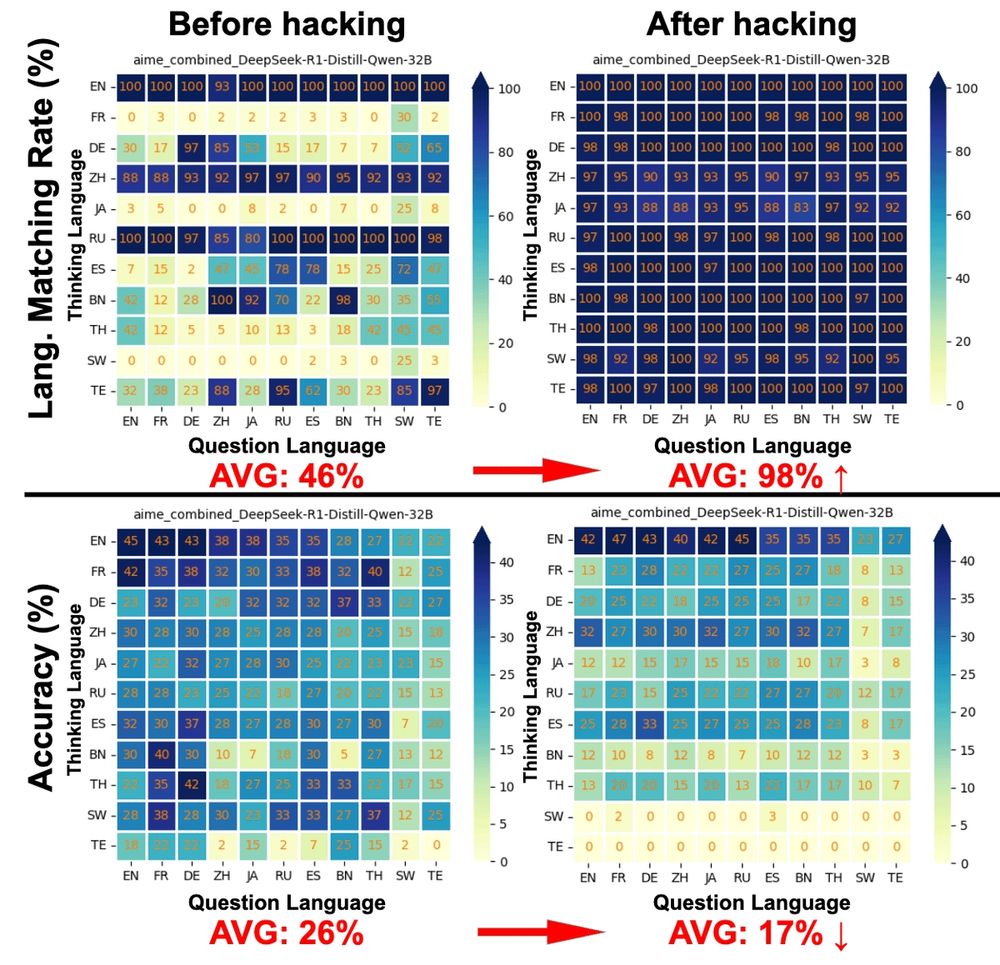https://betswish.github.io
- MT error prediction techniques & its reception by professional translators (@gsarti.com)
- thinking language in Large Reasoning Models (@jiruiqi.bsky.social)
- effect of stereotypes on LLM’s implicit personalization (@veraneplenbroek.bsky.social)
....
- MT error prediction techniques & its reception by professional translators (@gsarti.com)
- thinking language in Large Reasoning Models (@jiruiqi.bsky.social)
- effect of stereotypes on LLM’s implicit personalization (@veraneplenbroek.bsky.social)
....
@shan23chen.bsky.social @Zidi_Xiong @Raquel Fernández @daniellebitterman.bsky.social @arianna-bis.bsky.social
Github repo: github.com/Betswish/mCo...
Benchmark: huggingface.co/collections/...
Trained LRMs: huggingface.co/collections/...

@shan23chen.bsky.social @Zidi_Xiong @Raquel Fernández @daniellebitterman.bsky.social @arianna-bis.bsky.social
Github repo: github.com/Betswish/mCo...
Benchmark: huggingface.co/collections/...
Trained LRMs: huggingface.co/collections/...

















Tianyu Liu, Paul He, Arianna Bisazza, @mrinmaya.bsky.social, Ryan Cotterell.
Tianyu Liu, Paul He, Arianna Bisazza, @mrinmaya.bsky.social, Ryan Cotterell.

